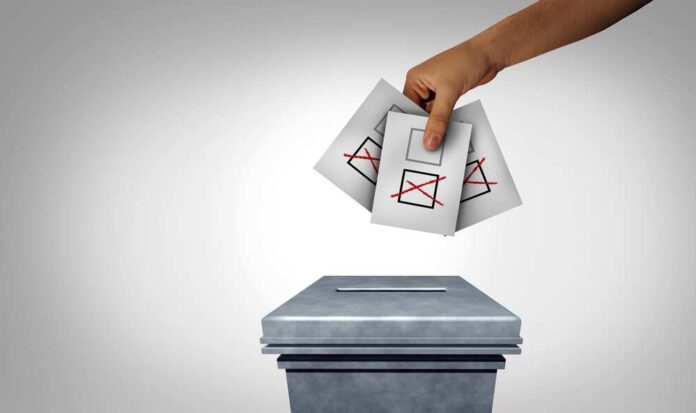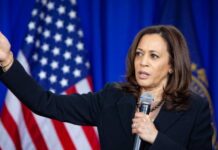
The Department of Justice filed a lawsuit on October 11 in federal court in Alexandria, Virginia, over removing non-citizens from voter rolls. The suit claims that the state, its board of elections, and Elections Commissioner Susan Beals broke federal law. The suit seeks to counter Governor Glenn Youngkin’s executive order asking local and/or state officials to remove people who cannot prove they are citizens from voter rolls.
Governor Youngkin said that his August executive order followed a rule made in 2006 by then-Governor Tim Kaine, a Democrat, and approved by the Department of Justice.
However, with the November election coming soon, the DOJ now says the order breaks a National Voter Registration Act rule. This rule says that any changes to voter lists must be made before the 90-day period leading to an election.
Youngkin’s order cited a Virginia law that requires government officials to cancel the voter registrations of noncitizens if they registered with false information.
In its lawsuit, the Department of Justice claimed that the efforts to clean up Virginia’s voter rolls broke the federal Quiet Period rule, which states that no major election changes can be made 90 days before an election.
However, Virginia officials argued that their actions focused on checking self-reported eligibility issues and were not the kind of large-scale voter roll removals that would violate this rule.
Since now-Senator Tim Kaine signed the law in 2006, both Democratic and Republican governors have used Virginia’s process for removing noncitizens from voter rolls.
According to Virginia officials, the federal Quiet Period mentioned by the DOJ doesn’t apply to Virginia’s policy. They noted that individuals have two weeks to confirm their citizenship before being removed from the voter rolls, so being disqualified isn’t automatic.
The process for removing someone from the voter rolls starts when a person applying for a driver’s license or another government document states that they are a noncitizen.
The Department of Motor Vehicles then shares this information with the state Department of Elections, which checks it against the records of local election officials.
The person is informed that they are ineligible to vote and given 14 days to prove their citizenship. If they can’t, they will be removed from the voter rolls. Virginia allows same-day voter registration at polling places if someone believes they were wrongly taken off the rolls.
In July, before the executive order was signed, Kaine emphasized that voting is a right for U.S. citizens.
Recently, a spokesperson for Kaine said that while it’s important to stop non-citizens from voting, they also need to make sure eligible voters aren’t removed from the voter rolls, especially with the upcoming election.
On the other hand, former President Trump criticized the lawsuit as proof of the DOJ being used for political purposes and praised Youngkin’s efforts to keep voter rolls accurate.
Since Youngkin signed the executive order in August, Virginia has reportedly removed over 6,300 individuals from its voter rolls.
At least 165 election-related lawsuits have been filed nationwide so far. Most focus on who can vote, how ballots are cast and counted, and how to ensure election security and prevent voter fraud. Legal experts believe these lawsuits won’t be settled in time to affect the 2024 election.
Virginia is not alone. A federal judge blocked Alabama from proceeding with a plan to remove non-citizen voters.
U.S. District Judge Anna Manasco issued a five-page order stopping Alabama Secretary of State Wes Allen from “inactivating” people who had non-citizen identification numbers. The judge said Allen missed a deadline set by federal law.
In August, Allen announced plans to eventually remove noncitizens from voter rolls, which included sending letters to those he believed were noncitizens. He stated he would not allow noncitizens to participate in elections. This plan affected 3,251 voters, while there were about 3.77 million registered voters in Alabama as of last month.
A group of private plaintiffs, including voters and voting rights organizations, sued to stop Allen in September. They argued that his actions occurred after the deadline to change voting laws set by the National Voter Registration Act (NVRA) and that naturalized citizens were also affected by his plan.
The DOJ and corrupt courts have again shown that they will do anything to ensure that Democrats hold power in 2024 and beyond, even if it means allowing illegal immigrants to decide federal elections.














